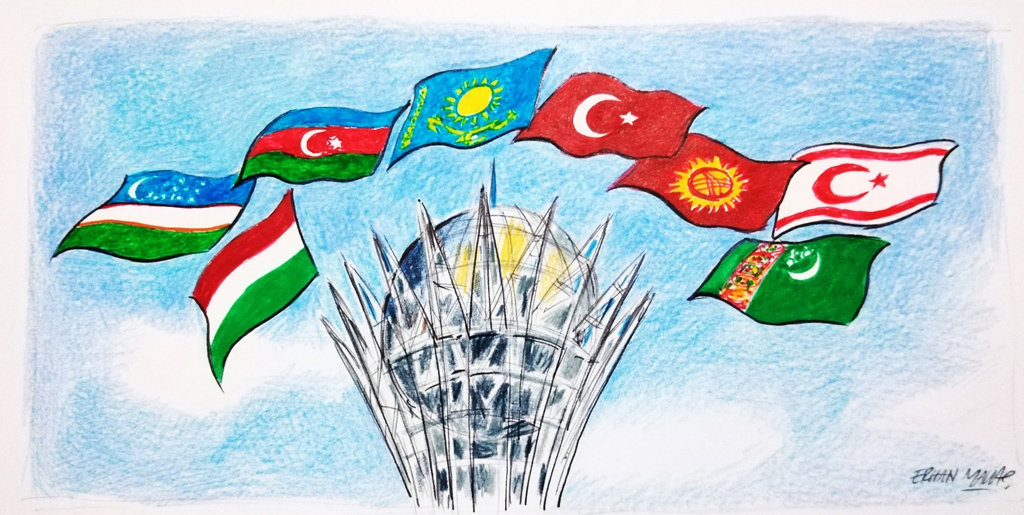
In Astana, a new step toward integration
The pursuit of Turkic integration has been a cornerstone of Turkish foreign policy in recent years. That development was directly linked to the Central Asian republics “opening up” and seeking to perform a “balancing act” between the great powers. This also included Uzbekistan and Kazakhstan’s opening up to the world. At the same time, the ever-stronger strategic partnership between Türkiye and Azerbaijan changes the regional balance of power.
Share
I was in Astana, Kazakhstan earlier this week to attend the 10th Summit of the Organization of Turkic States (OTS), whose main theme was “Turk Time” (or "Turkic Age"). Addressing the five member states – Türkiye, Azerbaijan, Kazakhstan, Uzbekistan and Kyrgyzstan, and the three observers – Hungary, Turkmenistan and the Turkish Republic of Northern Cyprus, President Recep Tayyip Erdoğan stressed that the “unity and solidarity of the Turkic world” was the single greatest force in dealing with global challenges. Recalling that the delivery of Caucasian natural gas to Türkiye and Europe made a major contribution to “security,” he raised another important point: “We will work together to turn the period ahead into the 'Turk Time' by incorporating our ‘Century of Türkiye’ vision into the Organization of Turkic States.” Erdoğan also highlighted the importance of making it easier for the citizens of member states to cross borders and obtain visas. Last but not least, he talked about the massacre in Gaza, insisting that the Turkic world could facilitate a cease-fire and, later, peace by working together.
The pursuit of Turkic integration has been a cornerstone of Turkish foreign policy in recent years. That development was directly linked to the Central Asian republics “opening up” and seeking to perform a “balancing act” between the great powers. This also included Uzbekistan and Kazakhstan’s opening up to the world. At the same time, the ever-stronger strategic partnership between Türkiye and Azerbaijan changes the regional balance of power.
Let us recall that Türkiye could not work as closely with the Turkic world as it intended when the Soviet Union disintegrated in 1989. Under a series of weak coalition governments, the country’s ability to invest in the Turkic republics or provide security and stability to that region was extremely limited at the time. In contrast, Türkiye effectively helps the relevant countries hold their ground, to their own advantage, amid the great power competition in Central Asia. Azerbaijan’s victory in Karabakh, in particular, highlighted Ankara’s ability to promote stability, security and cooperation in the region. To ensure that Central Asia does not become a venue for destructive competition over the next decades, Türkiye needs to focus more on its “integration” policy.
Tags »
Related Articles






